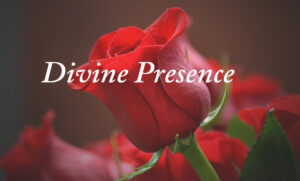Yes she was indeed a Vibhuti of the Mother, in fact her immediately previous incarnation.
The Mother recounts in one of her conversations.
‘And Russia…. Russia, changed to the right side, it would be wonderful!… I don’t know why…. Naturally I was Russian in a recent incarnation, when I was…. Is it Catherine?
Catherine , yes.
And that’s very much alive in me.
My impression is that if the whole Russian bloc were to turn to the right side, it would be a tremendous support…. And they are not satisfied; you know, they’re in the state in which you’re capable of doing something because you’re not satisfied—they are NOT satisfied. Their experience… basically they don’t want to admit it, but their experience has failed.’
She was among the most powerful rulers who united Russia and gave it a new cultural uplift turning it into a great and powerful nation. Her reforms are still recognised as pivotal in Russian Renaissance. Sri Aurobindo notes her contribution in The Human Cycle.
‘…..one might almost say that without the Ivans, Peters and Catherines there would have been no Russia……..
The work of the Peters and Catherines was founded on a strong political, military and economic necessity. From the political and military point of view, all these Slavic nations had everything to lose by disunion, because, disunited, they were each exposed and they exposed each other to the oppressive contact of any powerful neighbour, Sweden, Turkey, Poland, while Poland was a hostile and powerful State, or Germany and Austria. The union of the Ukraine Cossacks with Russia was indeed brought about by mutual agreement as a measure of defence against Poland. Poland itself, once weakened, stood a better chance by being united with Russia than by standing helpless and alone between three large and powerful neighbours, and her total inclusion would certainly have been a better solution for her than the fatal partition between these three hungry Powers. On the other hand, by union a State was created, so geographically compact, yet so large in bulk, numerous in population, well-defended by natural conditions and rich in potential resources that, if it had been properly organised, it could not only have stood secure in itself, but dominated half Asia, as it already does, and half Europe, as it was once, even without proper organisation and development, almost on the way to do, when it interfered as armed arbiter, here deliverer, there champion of oppression in Austro-Hungary and in the Balkans. Even the assimilation of Finland was justified from this point of view; for a free Finland would have left Russia geographically and economically incomplete and beset and limited in her narrow Baltic outlet, while a Finland dominated by a strong Sweden or a powerful Germany would have been a standing military menace to the Russian capital and the Russian empire. The inclusion of Finland, on the contrary, made Russia secure, at ease and powerful at this vital point. Nor, might it be argued, did Finland herself really lose, since, independent, she would be too small and weak to maintain herself against neighbouring imperial aggressiveness and must rely on the support of Russia. All these advantages have been destroyed, temporarily at least, by the centrifugal forces let loose by the Revolution and its principle of the free choice of nationalities.’
If you see it in the above light one may be better able to understand the Russia Ukraine War and the effort of certain Western powers to steadily weaken Russia.
As to her life, she is supposed to have had several lovers and is known to have looked after all of them very well. Vibhutis of God do not often fit into human moral standards. Not that they are immoral but their moral standards are very different and not based on the general social normals. Besides they are driven by the breath of God and the excess of the divine energy sometimes flows through unregulated channels in what may appear as vices.
Here are some revealing letters of Sri Aurobindo.
‘
As for Napoleon, Caesar and Shakespeare , not one of them was a virtuous man, but they were great men—and that was your contention, that only virtuous men are great men and those who have vices are not great, which is an absurd contention. All of them went after women—two were ambitious, unscrupulous. Napoleon was most arrogant and violent.
Shakespeare stole deer, Napoleon lied freely, Caesar was without scruples.
But do you really believe that men like Napoleon, Caesar, Shakespeare were not great men and did nothing for the world or for the cosmic purpose? that God was deterred from using them for His purpose because they had defects of character and vices? What a singular idea!
Why should he [the Divine] care [about the vices of great men]? Is he a policeman? So long as one is in the ordinary nature, one has qualities and defects, virtues and vices. When one goes beyond, there are no virtues and vices,—for these things do not belong to the Divine Nature.
Yes, certainly. Many great men even have often very great vices and many of them. Great men are not usually model characters.
They [great men] have more energy and the energy comes out in what men call vices as well as in what men call virtues.
Men with great capacities or a powerful mind or a powerful vital have very often more glaring defects of character than ordinary men—or at least the defects of the latter do not show so much, being like themselves, smaller in scale.’
Of course the reverse is not true. Great human beings may have vices but it does not mean that a person having vices is great. Besides all greatness belongs to God. Our contribution is the human limitations and defects.
Affectionately,
Alok Da



